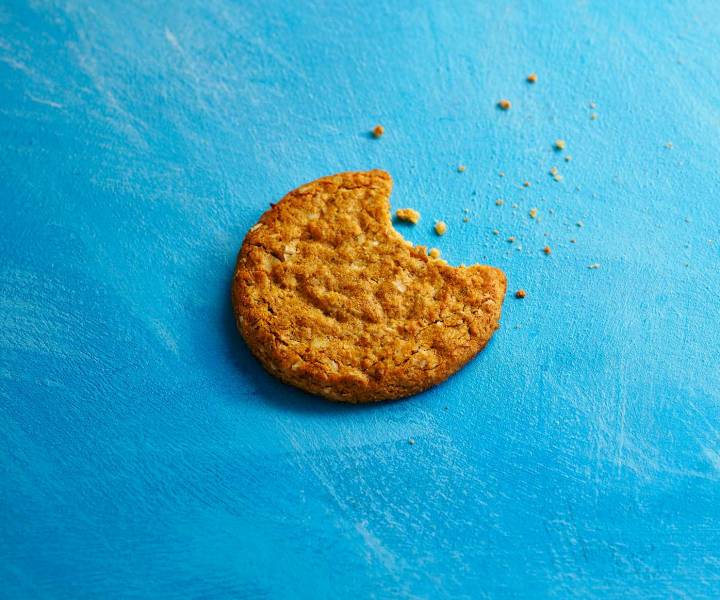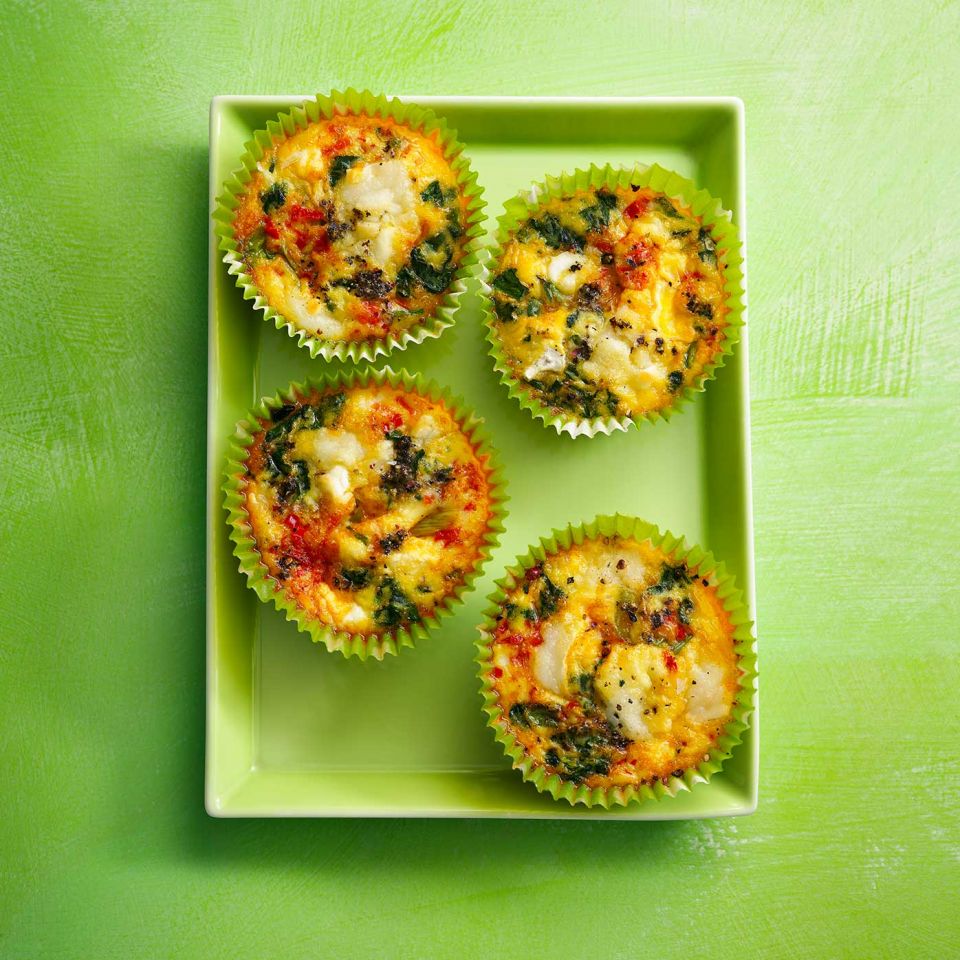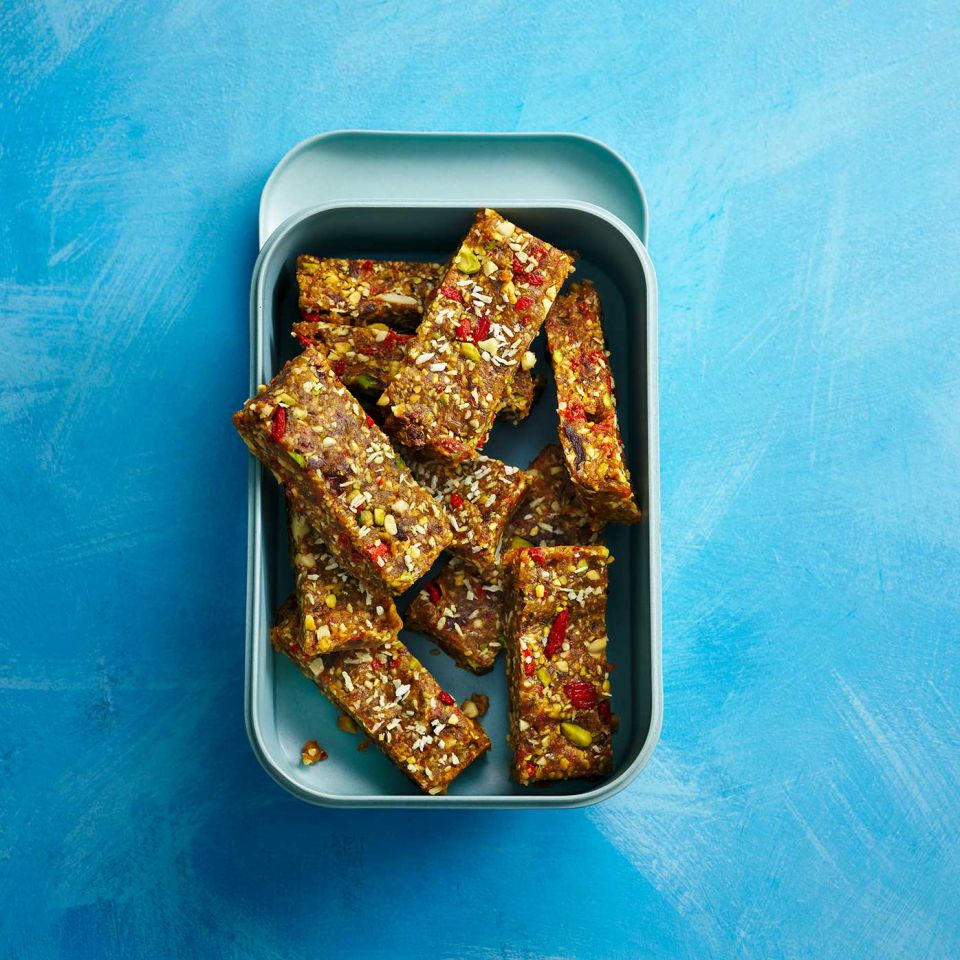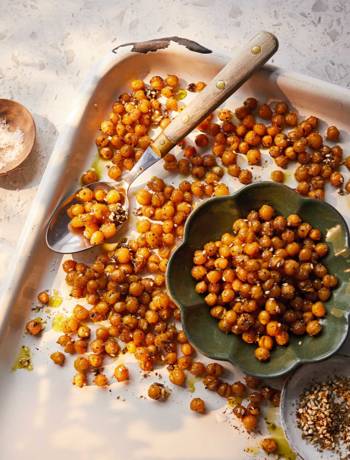Health
How to snack right
by Hannah Ebelthite

The UK has developed a passion for snacking that experts believe is contributing to growing obesity levels. However, a mid-morning blood-sugar low is hard to deal with, so if you’re going to snack, here is how to do it right...
When was the last time you ate? Was it a meal, or something extra? Perhaps you’re nibbling on something right now... It wouldn’t be unusual, given that we get around 25 per cent of our daily calories in snack form. Recent research found half of us are tempted by snacks at least twice a day. Women are the most keen, with 27 per cent admitting to snacking when not hungry. As a nation, we spend £11.1billion a year on sweet and savoury snacks, and nearly half the £330m spent on food and drink advertising promotes snacks, soft drinks and confectionery. Last year, a report from then-Chief Medical Officer Dame Sally Davies called for these ads to be banned.
Controversially, she also advised tackling childhood obesity by banning food and drink, with the exception of water, on local public transport, saying: ‘Our politicians need to be bold and help everyone embrace healthier life choices.’ Whether or not the current government will act remains to be seen. But it does raise the question: how much is our culture of snacking contributing to poor health and excess weight for all of us, not just children? Throughout our evolutionary history, humans have not been snackers – it’s a trend that’s developed over the past 40 years. ‘Our raised-on-rationing grandparents were more active than us but able to subsist on three square meals,’ says Dr Jenna Macciochi, immunologist and lecturer at the University of Sussex. Of course, there were traditions like elevenses or afternoon tea. ‘But these are social occasions rather than dietary needs and connection is good for emotional health,’ she says. ‘That’s different to the sort of distracted over-consumption we see today.’

The grazing theory
Serial dieters will be familiar with the now-outmoded idea of ‘grazing’. ‘The suggestion was that, unless we ate every few hours to keep our blood-sugar levels high, we’d experience energy slumps and be prone to cravings and overeating,’ explains consultant dietitian Sophie Medlin (citydietitians.co.uk; @sophiedietitian). ‘Grazers ate six small meals a day, rather than three large meals and snacks on top. In reality though, it wasn’t practical; people often ate more overall.’ Of course, some of us – such as those with diabetes – may need snacks. Very active people, also need food more regularly.
But for most of us, research suggests it’s preferable to leave longer breaks between eating to keep our microbiome – the trillions of microbes that inhabit the gut – diverse and healthy. ‘The gut runs better on a circadian rhythm, with digesting then resting phases,’ says Tim Spector, professor of genetic epidemiology at King’s College London. And there are other issues, too. ‘Unhealthy snacking shows up as increased inflammatory markers in the blood,’adds Dr Macciochi. ‘And being in a near-constant state of inflammation is a known driver of unhealthy ageing and associated diseases.’
So, is the answer to eat better at mealtimes and quit all snacks? Not necessarily. ‘Not every meal you eat will be perfectly nutritionally balanced,’ says Sophie Medlin. ‘Sometimes life is hectic and you don’t get to make the sensible choice. Other times, you need a pick-me-up to power you through a workout or long meeting.’ Post exercise, a snack combining carbohydrates and protein can speed up muscle recovery. ‘Just be careful you’re not using exercise to “earn” food,’ warns Medlin.
And at other times, ‘strategic snacking’ is ideal to tide you over and prevent impulsive choices later on. ‘If you tend to be peckish at 11am, yes you could look at a more filling breakfast choice,’ she says. ‘But you could also pre-empt biscuit bingeing by having a healthy snack to hand.’ The four o’clock dip is common for lots of people, as is a tendency to fall into a bowl of crisps while supper cooks – it can be a long time between lunch and dinner. ‘That’s when you risk poor choices like takeaways or ready meals,’ says Medlin, ‘so a strategic late afternoon snack is definitely sensible.

Snack right
The perfect between-meal food is satisfying, modest in size and provides nutrients. So, if you like the social ritual of certain snacks, or function better topping up between meals, try to make healthier choices. ‘The problem with most snacking is we choose energy-dense items that aren’t satisfying or nutritious, and that can be consumed in a few mouthfuls,’ says Dr Macciochi.
People who favour higher-protein snacks tend to be healthier overall and not gain as much weight, says Medlin. ‘Calories from protein take longer to metabolise than those from carbs or fat so keep you fuller for longer,’ she adds. High protein snacks include natural yogurt, eggs, nuts and seeds, houmous with vegetable crudités, nut butter on an oatcake or some apple. Fibre is also filling, so get yours from vegetables and fruit and up your nutrient count at the same time. Like Dr Macciochi, Medlin recommends aiming for raw wholefoods as snacks, or alternatively making your own (see our recipes overleaf). ‘Read the labels on shop-bought snacks like cereal bars and remember sugar hides in many forms – honey, date syrup, fruit purée,’ says Medlin. And if you sometimes say yes to those office biscuits, don’t panic, she adds. ‘Just look at what you’re eating across the rest of the day and balance your intake accordingly.’
Snacking in short:
● Be strategic – a well- timed snack can stop overeating later.
● Avoid evening snacks.
● For children, follow the Government’s Change4Life campaign and stick to two 100 calorie snacks a day.
● Adult snacks shouldn’t exceed 20 per cent of your daily calorie allowance – so should total no more than about 400 cals for women.
● Choose wholefood snacks high in protein and filling fibre.
● Check the label for added sugars, saturated fat and salt.
● Ask yourself ‘Am I hungry? Do I really want this?’ If the answer to both is no, have a glass of water, or a cup of tea or coffee instead.
● Don’t snack on the hop. Sit down, eat slowly and mindfully. Enjoy.
Now try our healthy snacking recipes:












